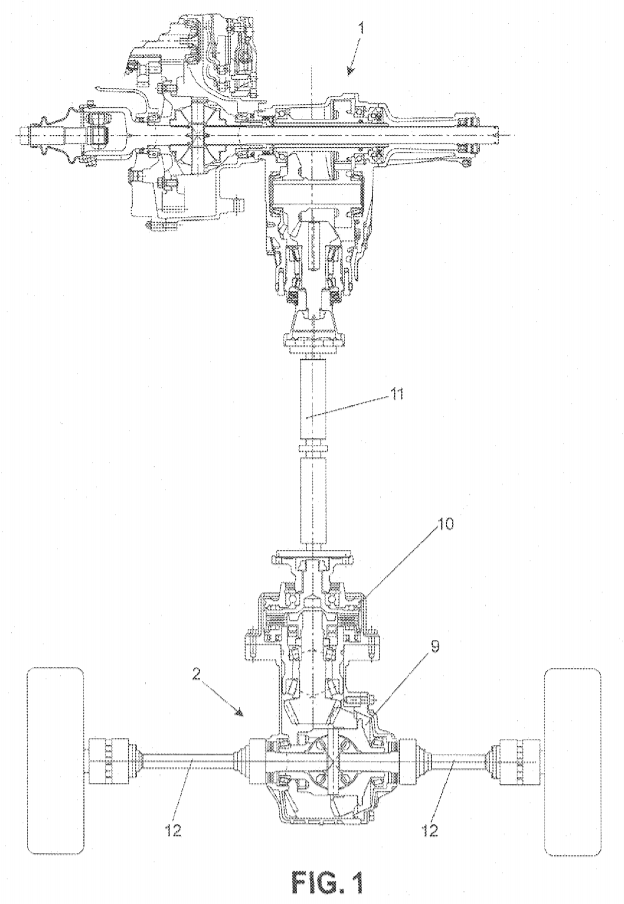While a petitioner may appeal the PTAB’s final decision if dissatisfied with the outcome… standing for IPR petitions does not do away with the Article III injury-in-fact requirement for appeal to the CAFC.
 On Friday, August 3rd, the Court of Appeals for the Federal Circuit issued a precedential decision in JTEKT Corporation v. GKN Automotive, which dismissed an appeal stemming from a trial conducted at the Patent Trial and Appeal Board (PTAB) where two of seven challenged claims were upheld as not unpatentable. The Federal Circuit panel of Chief Judge Sharon Prost and Circuit Judges Timothy Dyk and Kathleen O’Malley found that appellant JTEKT lacked the standing required to appeal the case because it couldn’t prove an injury-in-fact required for standing.
On Friday, August 3rd, the Court of Appeals for the Federal Circuit issued a precedential decision in JTEKT Corporation v. GKN Automotive, which dismissed an appeal stemming from a trial conducted at the Patent Trial and Appeal Board (PTAB) where two of seven challenged claims were upheld as not unpatentable. The Federal Circuit panel of Chief Judge Sharon Prost and Circuit Judges Timothy Dyk and Kathleen O’Malley found that appellant JTEKT lacked the standing required to appeal the case because it couldn’t prove an injury-in-fact required for standing.
The patent at issue in this case is U.S. Patent No. 8215440, titled Drive Train for a Vehicle with Connectable Secondary Axle (see Fig 1 of the patent left). Issued in July 2012, the patent covers a drivetrain of a vehicle comprising primary and secondary drivetrains wherein a secondary axle is connectable to a primary axle via a switch-on mechanism to allow the integration of the secondary drivetrain into the drive train so that the overall drivetrain power is transferred over both the primary and secondary axles. The resulting invention provides a drivetrain that overcomes shortcomings of conventional drivetrains incorporating a secondary axle by reducing the number of components in the drivetrain, reducing fuel consumption and power loss.
JTEKT filed a petition for inter partes review (IPR) proceedings at the PTAB in October 2015 to challenge the first seven claims of the ‘440 patent and the PTAB decided to institute the IPR in March 2016. After the institution decision, patent owner GKN disclaimed challenged claims 1, 4 and 5. In a final written decision filed in January 2017, the PTAB determined that JTEKT had proven the invalidity of claims 6 and 7 on grounds of obviousness. While GKN did not appeal the PTAB’s decision, JTEKT appealed the PTAB’s upholding of the validity of challenged claims 2 and 3.
In its discussion of JTEKT’s appeal, the Federal Circuit noted that a person or entity doesn’t need to have Article III standing in order to petition the PTAB for IPR proceedings on a patent. While a petitioner may appeal the PTAB’s final decision if dissatisfied with the outcome, previous case law from the Federal Circuit has held that the statute on standing for IPR petitions does not do away with the Article III injury-in-fact requirement for appeal to the CAFC. The appellate court cites mainly to two cases in discussing this requirement: 2016’s Phigenix, Inc. v. Immunogen, Inc., where the Federal Circuit dismissed an appeal from the PTAB filed by Phigenix after it failed to provide sufficient proof that it had suffered an injury in fact; and 2014’s Consumer Watchdog v. Wisconsin Alumni Research Foundation, which dismissed a similar appeal from the PTAB filed by Consumer Watchdog. In both of those cases, the appellants did not allege any potential of a patent infringement suit and in particular Consumer Watchdog wasn’t engaged in any related commercial activities nor was it a prospective competitor of the patent owner. In its appeal, Phigenix argued that it suffered economic injury because the existence of the patents increased the competition that it faced, but the Federal Circuit also found that this didn’t prove an injury in fact.
The fact that JTEKT had no product on the market doesn’t preclude its Article III standing in either IPRs or declaratory judgment actions. That, however, wasn’t relevant for this appeal:
“But where the party relies on potential infringement liability as a basis for injury in fact, but is not currently engaging in infringing activity, it must establish that it has concrete plans for future activity that creates a substantial risk of future infringement or likely cause the patentee to assert a claim of infringement.”
In its appeal, JTEKT had submitted declarations from one of its own patent engineers as well as its chief engineer. However, neither of these declarations clearly established that JTEKT had a chance of being targeted for patent infringement based on claims 2 and 3 of GKN’s ‘440 patent. The patent engineer in particular noted that the risk of infringement was impossible to quantify at the time of the declaration because JTEKT’s product had not reached a stage of development where the risk of infringement was possible to analyze. JTEKT had also argued that its participation in the IPR created an injury in fact through estoppel, the Federal Circuit held that such estoppel provisions do not constitute an injury in fact when the appellant is not engaged in activities which would give rise to potential infringement, again citing to Phigenix.
“We are thrilled with the outcome of this matter,” said Jennifer Brumbaugh, deputy director of intellectual property for GKN Automotive. “The ’440 patent is one key item of a suite of patents and intellectual property rights worldwide that protect our Twinster technology. GKN Automotive will continue to defend its intellectual property and leverage our patent rights to maintain our market-leading position in all-wheel drive and electric mobility technologies.”

![[IPWatchdog Logo]](https://ipwatchdog.com/wp-content/themes/IPWatchdog%20-%202023/assets/images/temp/logo-small@2x.png)

![[[Advertisement]]](https://ipwatchdog.com/wp-content/uploads/2024/04/Patent-Litigation-Masters-2024-banner-early-bird-ends-Apr-21-last-chance-938x313-1.jpeg)
![[Advertisement]](https://ipwatchdog.com/wp-content/uploads/2024/04/Patent-Litigation-Masters-2024-sidebar-early-bird-ends-Apr-21-last-chance-700x500-1.jpg)

![[Advertisement]](https://ipwatchdog.com/wp-content/uploads/2021/12/WEBINAR-336-x-280-px.png)
![[Advertisement]](https://ipwatchdog.com/wp-content/uploads/2021/12/2021-Patent-Practice-on-Demand-recorded-Feb-2021-336-x-280.jpg)
![[Advertisement]](https://ipwatchdog.com/wp-content/uploads/2021/12/Ad-4-The-Invent-Patent-System™.png)







Join the Discussion
One comment so far.
B
August 8, 2018 04:20 pmSuch a bizarre outcome, but I believe correct.